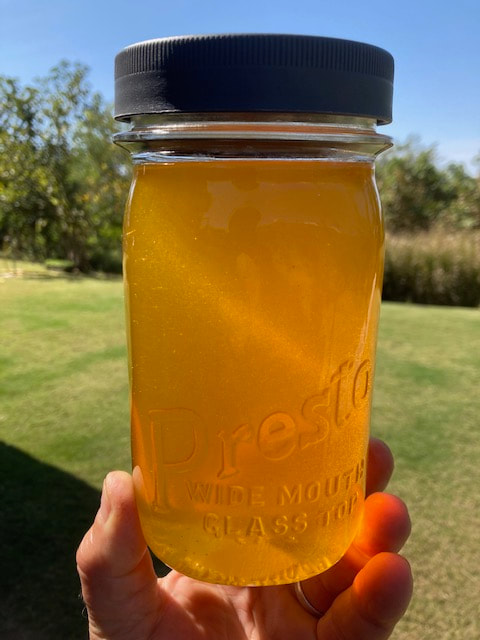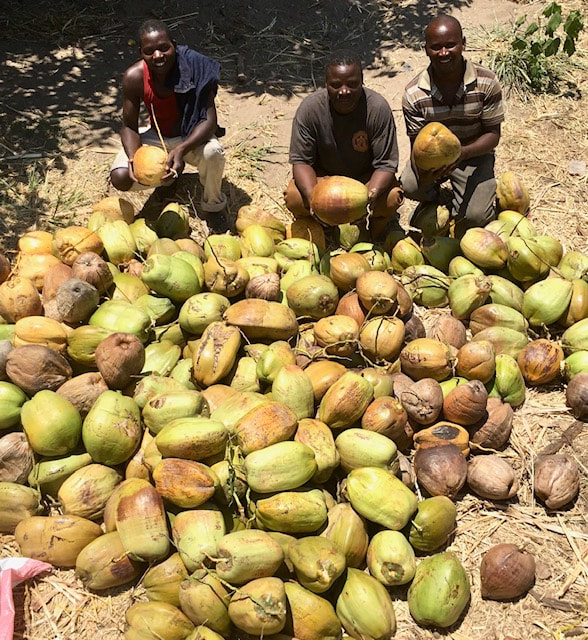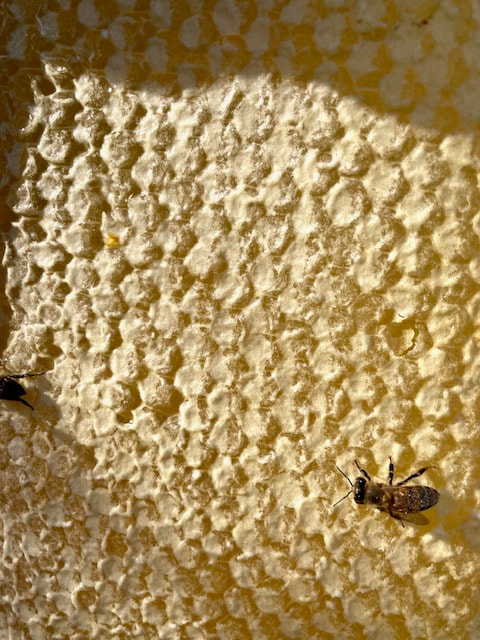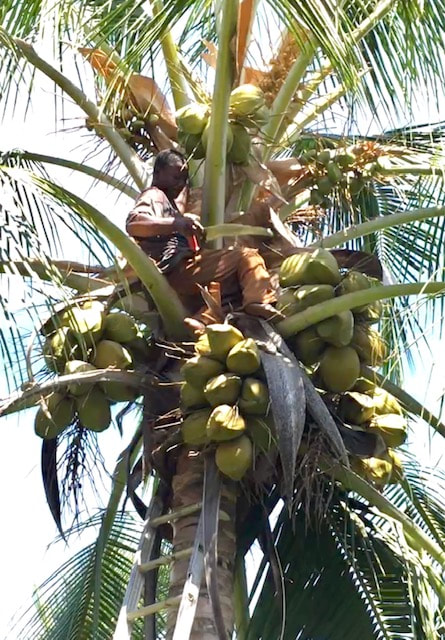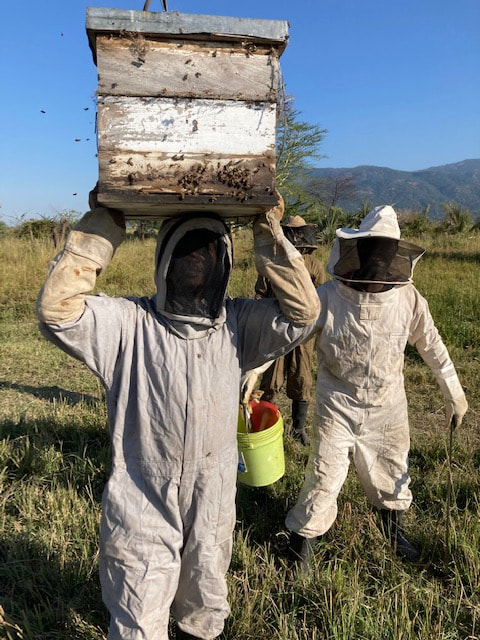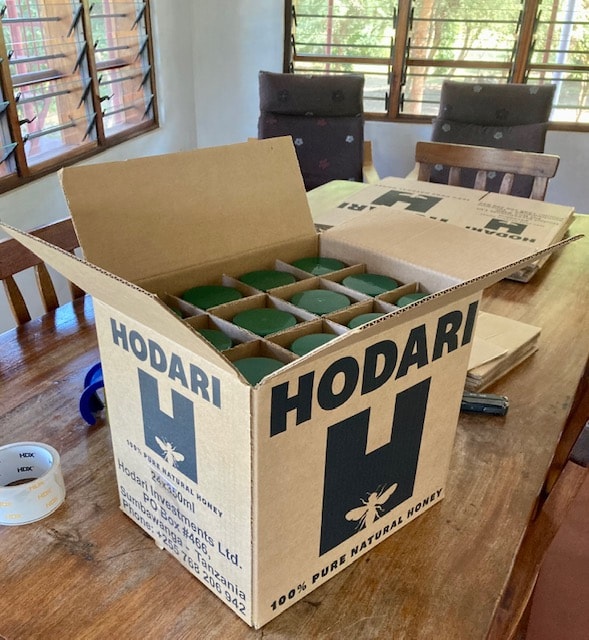Rukwa Valley Harvest Report 2020
|
Greetings African Beekeepers,
I trust that you are all well and enjoying your beekeeping ventures wherever you are. I am glad to be able to give you an update on our 2020 honey harvest from African bees in SW Tanzania. The year found us in the middle of the Covid pandemic and unable to do any training at our base. However, we did have a nice time gathering honey. The harvest started on May 28th and went on until May 30th. We noticed above all that the orchards that we have located near our hives have done extremely well and attribute a lot of the heavy fruiting to good pollination! All our citrus, as well as papaya and coconuts were in top form and we believe that a lot of the nectar in the floral mix came from these trees, especially the citrus and coconuts that are both heavy nectar bearers. As usual we approached our apiaries and single hives in the late afternoon harvesting until dark. If approached this time of the day the bees, although aggressive, cool down over the rapidly approaching night and are approachable again the next day. Any hives that are opened in the morning will remain in high aggression mode until dark, so better harvesting late rather than early with African bees. Many of our hives, which are of the top bar variety, had substantial growth of nettles and other plants over them due to not slashing around the hives after the rains subsided. We had a lot to do in our orchards after the rains subsided in April and never got to it. It disturbed the bees more and made our work harder due to dealing with the extra impeding weeds and tropical growth as we harvested. This year we had fewer hives than ever, only harvesting from 30. The past year had us removing many of our hives from surrounding forests due to complaints from farmers. The Rukwa Valley is getting more populated and as more people need farmland, we lose places to hang our hives. Many of the heavily and lightly forested places that we have gotten permission to hang our hives in the past now have been cut to clear for farmland. It is understood that farming is a chief and important operation for local people, but they will soon see erosion in a severe way of they "clear cut" so much of the valley’s virgin forests. This practice also threatens beekeeping habitat making it harder to get large yields of honey and wax from hives. The hives in 2020 had marginal amounts of honey and we find that almost every year it is difficult to gauge the best time to harvest. It would be nice to always harvest the same day every year but unfortunately the harvest can’t be timed in that way. The harvest is always in late May or early June but coincides exactly with flowering that takes place at slightly different times every year. It is good to have one hive hanging from a scale to gauge weight gain as the bees put honey in. At peak weight gain it is optimal to harvest your honey in all “local" hives since all the hives will be on the same nectar flow at once. We got 350 pounds of honeycomb and pressed it down to almost half that in liquid honey. 60 percent of our hives were in good honey and 40 percent had none or were poorly occupied. This is standard with African bees. For every two hives that you have, usually one will produce well and the other poorly. We are moving all our beehives to property that we own in the Rukwa Valley and will, unfortunately, not be able to keep our hives in village-managed forests due to the frequent requests to move our beehives because of farm expansion. It's difficult to get requests to move hives that are strong and have large populations of bees. You almost always lose the population in a move. We must all do the best with what we have and not give up! Well, happy beekeeping! Ted Rabenold Hodari Investments Ltd. |
|
